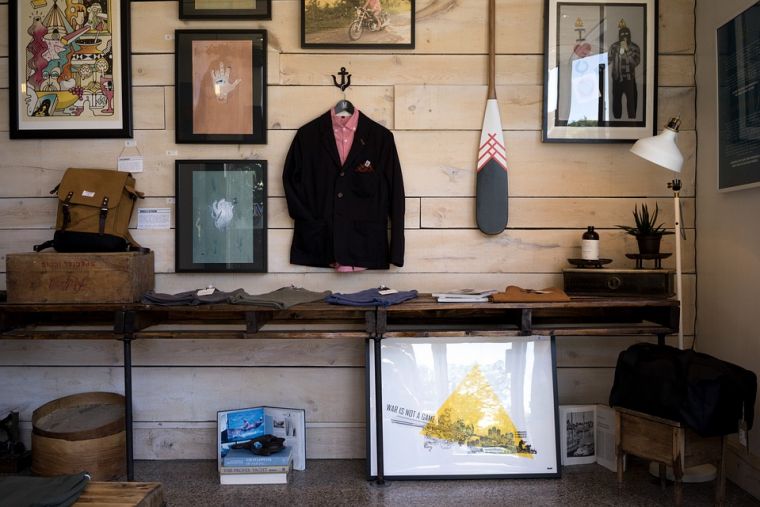What we can learn from monks about embedding spirituality into our daily lives

Yesterday I did something bad. Not send-your-soul-to-the-depths-of-hell bad, but bad-enough-to-churn-your-inside-for-days-kind of bad. It was an accident.
You see my fiancé (side note—I just got engaged! Woohoo!) owns a little yellow cockatiel called Ollie, who loves seeds, the windowsill and a good head scratch.
I was cooking dinner yesterday (in an attempt to gain some good fiancé points and woo her with my sweet cooking ability) when my little friend Ollie came over to join me. She is a very social bird and no doubt was wondering what was happening in the kitchen.
I didn't see her coming and as I stepped back my foot landed squarely on the tail of my poor little friend. With a hiss and a yell she flew off complaining loudly and making her displeasure known.
In this second my heart stopped, seeing her yellow tail feathers on the floor I ran to see if she was okay. She was all in one piece—albeit a bit grumpy with a sore backside—at the top of the curtain.
My hands were visibly shaking and my heart was racing. Despite the action only being a step backwards (which normally doesn't cause too much of an upset), the shock of what had happened strongly affected me physically. In the motion of stepping back, and witnessing what my footstep had done, I was so deeply moved by empathy for this little yellow bird that my body could not help but react physically.
I have been reflecting on this today—how deeply our emotions are connected with our physical reality; how deeply what goes on inside of us affects our physical being.
Interconnected
I then got to thinking about this in relation to my own spirituality—not just my physical and mental states are connected, but both are also deeply connected to the spiritual.
Post-enlightenment, we often separate these three facets of our person out; we have developed a Platonic understanding of existence. Our spiritual lives happen in one confined area and our relationships in another. We try and improve our physical, mental and spiritual health in three separate ways.
As we separate them out we miss out on a flow or rhythm between the physical, emotional and spiritual. In losing this, our lives become bitsy and separate, and our spirituality is side-lined in favour of the other stuff we need to survive.
Invasive spirituality
I want to suggest a different way of approaching life, one inspired by monks. You see, the monks had this deep spirituality that was invasive to their lives.
The monks were men of prayer and meditation, but this prayer and meditation was coupled with generous hospitality, deeply caring for and cultivating the land, advocating for justice in society, and (most awesomely) brewing the best beer in the country.
The monks were those who would move into a village and revitalise it, using these practices they could instil new life into a village. They did this through a beautiful interweaving of their spirituality and their daily lives.
Their work of gardening and cultivating the land was a deep part of their spirituality. The hospitality they gave was deeply connected with their own journey of receiving the hospitable love of God. Their beer brewing was the best in the land because it was so interwoven with their spirituality (God may even have personally blessed the beer), as well as being useful for the monasteries to survive financially.
Urban Monks
I am not suggesting that we all leave our homes and communities and move into our local monastery, but what I am suggesting is that we become a bit more monk-like. I am coining the phrase 'Urban Monks.'
We can learn from the monks and become people so inspired by the hospitality of God that we live lives of hospitality; so inspired by the majesty of the world that we cultivate and grow food on our small plots of land; so deeply connected to the importance of our work that we make it the best in the land.
What would it look like if we all slowed down? Maybe it would mean cutting out one day of work with the purpose of testing out this flow. What if we quit our jobs with the purpose of finding a rhythm and lifestyle which enabled the flow from spiritual to physical to mental? What if we realised deeply the connection between our spiritual, mental, and physical health, and worked actively to bring them together?
What if we all became urban monks?
Tim Shallard is a co-director of Mosaic Workshop, a shared creative space in central Auckland. Tim is also a part owner of the coolest café in Auckland; he studies theology at Carey Baptist College and runs a poetry collective. His passions include coffee, community, and slowly becoming a Monk. Tim Shallard's previous articles may be viewed at http://www.pressserviceinternational.org/tim-shallard.html











